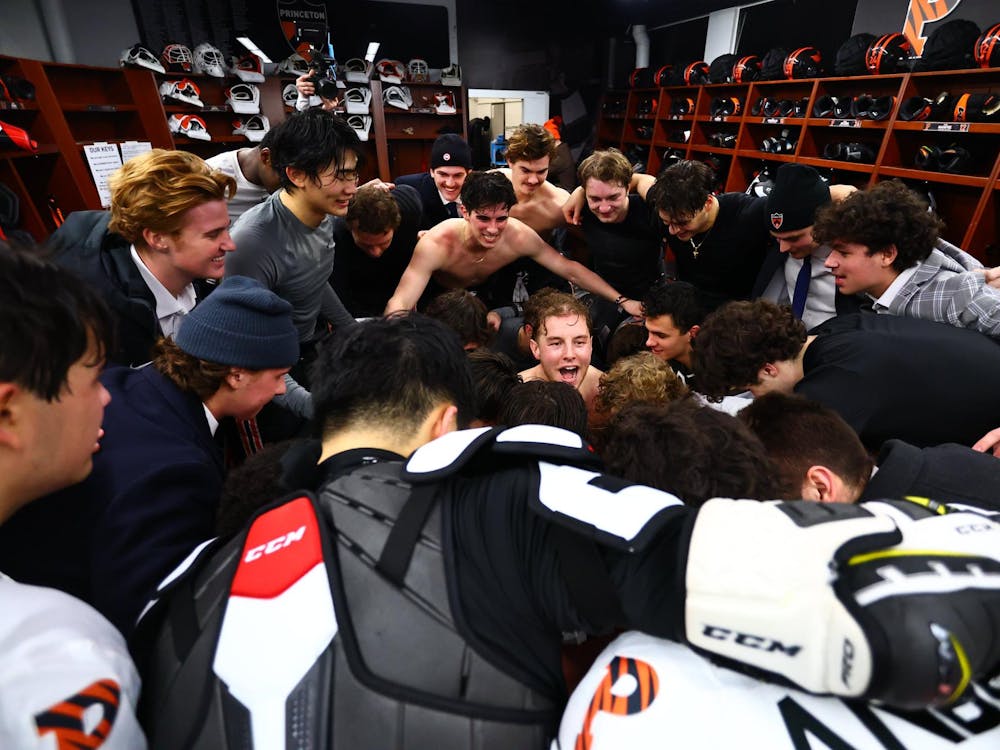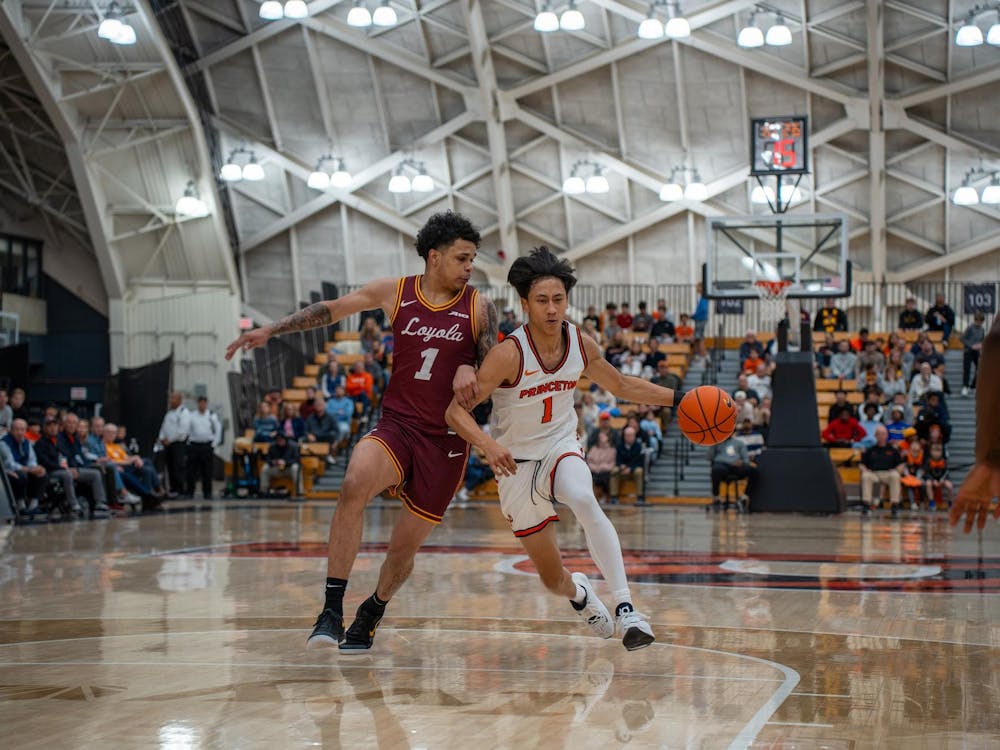Peter Yik crouched on the court with the sound pounding behind him. The Harvard stands were packed for the men's squash meet that would decide the Ivy championship, a title that Harvard had hoarded for nine straight years. The courts pulsed with Crimson fans that swelled at every missed point by Princeton's No. 1 player, the sound crashing over Yik where he stood.
All the other matches were over, and there was a 4-4 tie, allowing the entire crowd to focus on Yik and Harvard No. 1 Tim Wyant, who had already won the first game, 15-9. Yik's legs hurt. He was tired. And he didn't know what had happened on the other courts — that his team needed only one more match to win.
The uncertainty did not matter. The pain was ignored. And as the sound receded, Yik won the next three games, 15-5, 15-8, 17-14, giving Princeton a taut 5-4 victory and an outright Ivy League title for the first time since 1982.
"It's been a long time coming," Yik said. "I felt the pressure, but it was great. Most of the matches in my career have not been that meaningful. I just wanted it so badly for the team. That's what pulled me through."
As Peter saw his brother David, who was playing for Princeton at No. 2, leap over two rows and several spectators onto the court, he was still unsure, asking, "Did we win? Did we win?"
Other Tigers were now swarming and roaring, leaping onto each other and collapsing in the middle of the court. They had won.
"It was amazing," freshman No. 5 Will Evans said. "I can't really describe it. Peter pulled off an incredible win. The stands were completely filled and every point that the Harvard guy won, the crowd would just erupt and Peter dealt with that incredibly. Everyone jumped on the court and they were just screaming their heads off. I've never experienced anything like that in my squash career."
Young guns
Three out of the five Princeton victories were by freshmen — No. 2 David Yik, No. 5 Will Evans and No. 4 Eric Pearson . A year ago, the Tigers went 0-3 against Harvard and Yale, prompting head coach Bob Callahan '77 to initiate a global search for talent. At the junior World Championships, held in Princeton in 1998, Callahan handed out letters inviting players to consider Princeton as a potential college option.
Evans, playing at No. 2 for New Zealand, took a flyer, as did Dan Rutherford, competing for the United States. David Yik and Pearson both have international experience as well.
But, said Evans, even competing in international competitions all over the world did not approach the feeling after the victory at Harvard on Sunday.
"All of that doesn't really add up to what it felt like yesterday," Evans said. "It felt like a real team triumph. Squash is such an individual sport that when you can get that team feeling into it, it just magnifies everything. It was amazing. It was crazy."
It was also carefully orchestrated. After losing for the second time to Harvard — first in the Ivy scrimmage and then in a five-man tournament — the Tigers held a players-only meeting, one night after the coaches had emphasized the team's lack of fitness.

This could not continue, the players realized. Not if they wanted to win. So practices became infused with a new sense of urgency, transforming tiring and sometimes unfocused experiences into intense periods of competition intended to simulate game conditions.
"We've worked hard since those losses," the younger Yik said. "Those losses were a kick in the pants. After that we said that we needed to get moving, get training, and we did that. The losses before that made the win sweeter. So getting on court and beating them when it counted made it all better."








